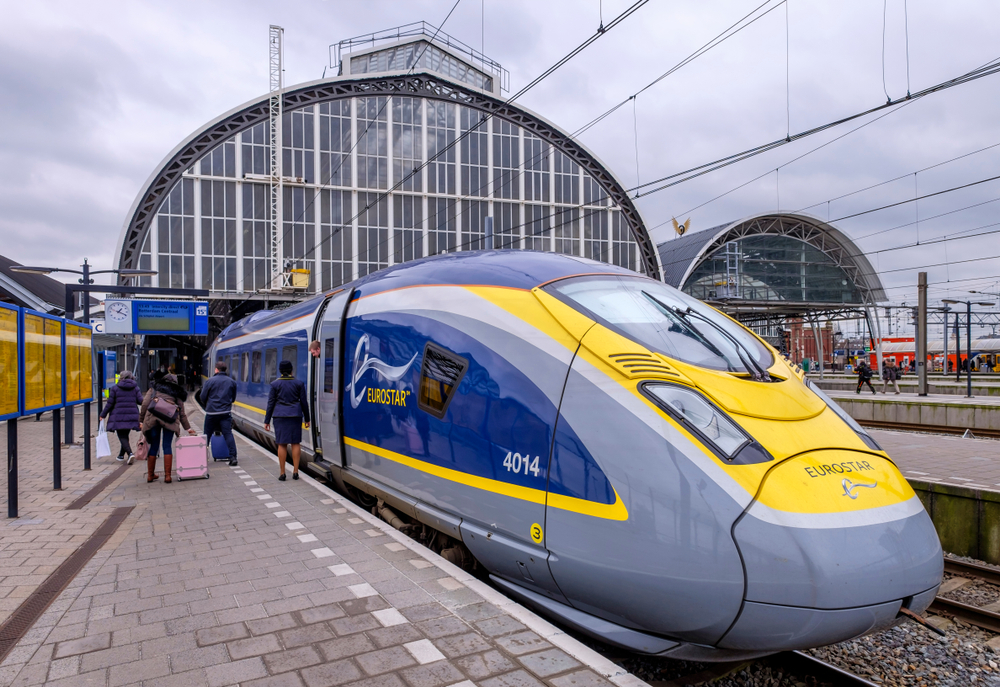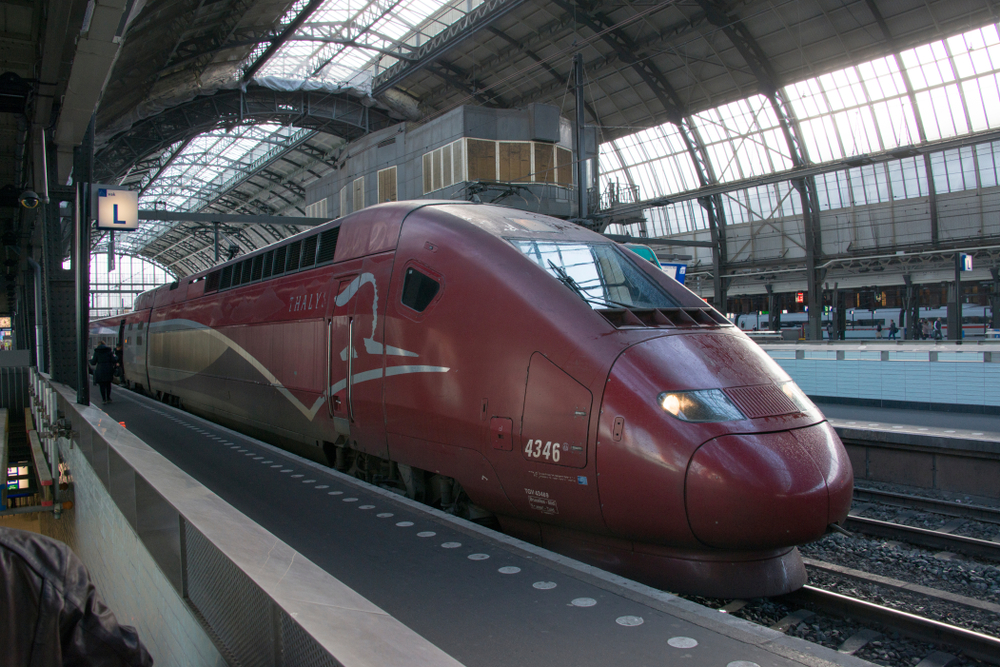
Eurostar’s new service from London to Amsterdam made its maiden voyage on 5 April – despite the French rail industry doing everything they could to ruin the party with their strike. The service departed from St. Pancras at 8:31 am and arrived in Amsterdam three hours and 41 minutes later.
Moving forward, there are two services a day starting today, one in the morning (8:31 am) and one in the afternoon (5:31 pm). Although the journey is direct to Amsterdam, the journey back is much longer and requires a stopover.
The train will stop at Brussels on its return and will take four hours and 46 minutes. The purpose of the stop is for the passport checks mandated by the British and Dutch governments. This should change in 2019 when the aforementioned governments agree that checks will take place in the Netherlands prior to its departure. Ticket prices for this new route start at £35; Business Premier ticket prices start from £260.
“A new era in international high-speed rail”
When Eurostar announced the new train route, its chief executive Nicolas Petrovic said, “The launch of our service to the Netherlands represents an exciting advance in cross-Channel travel and heralds a new era in international high-speed rail. With direct services from the UK to the Netherlands, France, and Belgium, we are transforming the links between the UK and three of Europe’s top trading nations.
“Our new route marks the culmination of the extensive investment in high-speed rail on both sides of the Channel. The launch of the London to Amsterdam service marks a historic milestone in the expansion of international high-speed rail travel, revolutionising the connection between these important destinations.”
French rail strike
 Eurostar launched the new train route amid the French rail workers walkout that always paralyses travel between London, Paris, Brussels, and Lille. The strike resulted in the cancellation of 29 services and passengers were warned of long delays.
Eurostar launched the new train route amid the French rail workers walkout that always paralyses travel between London, Paris, Brussels, and Lille. The strike resulted in the cancellation of 29 services and passengers were warned of long delays.
Eurostar released a statement saying: “We’re very sorry for the inconvenience that this will cause you. We will contact passengers with journeys booked to travel on days affected as soon as we receive the details of the implications of the SNCF strike on Eurostar. Please make sure to download your tickets early so that we can contact you.”
The service went on to advise customers: “When retrieving your tickets online, you will be asked for contact details, we use these to inform you by email/SMS of anything affecting your journey including strike developments. We will endeavour to provide you with as much advance warning as possible to enable you to rearrange your travel plans.”
“We can only recommend that you keep an eye on our site for further information…”
Meanwhile, Eurostar’s website does not confirm whether the new route will be affected by the train strike. However, the company answered concerns via Twitter saying, “We can only recommend that you keep an eye on our site for further information.”
It is advised that all passengers should check which times are cancelled with a full list on the website. Currently, there are a number of trips to Brussels cancelled, but no trip to Amsterdam is cancelled.
Competition with airlines

Eurostar’s new train route sparks competition with low-cost airlines and the train company is hopeful to take some of the business away from the airlines flying to the Netherlands.
Eurostar believes that rail travel has a few advantages that will attract the passengers. Unlike the airlines, trains have no baggage restrictions and a passenger can take two suitcases and a third smaller piece of luggage without additional charge. Moreover, trains have no liquid ban above 100ml and have a less stringent screening process. In addition, passengers have reasonable WiFi connection while on board the train, which is not always available in the skies (depending on the airline).
On the other hand, the train also has its share of disadvantages. One is the frequency of travel. Between 6 am and Eurostar’s departure at 8:31 am, 13 flights had left from six London airports. Eurostar only has two trips scheduled on weekdays and one trip on weekends (morning only on Saturdays and evening only on Sundays). This could pose a problem for business people travelling on a tight schedule.
Lastly, the train ride requires a stop in Brussels for border control. All passengers will take a Thalys high-speed train to Brussels where they clear security and passport control, before boarding a Eurostar service — perhaps the very train which has run from Amsterdam to Brussels without them.
No doubt there will be an interesting tussle in the coming few months as the Channel Tunnel vies for some of the market shares for UK-to-Holland travel that has been dominated by LCCs in the last three decade or so. We wish Eurostar all the best for the battle – and with the French rail industry planning more strikes in coming months, the train company will need all the help it can get.


Comments are closed.